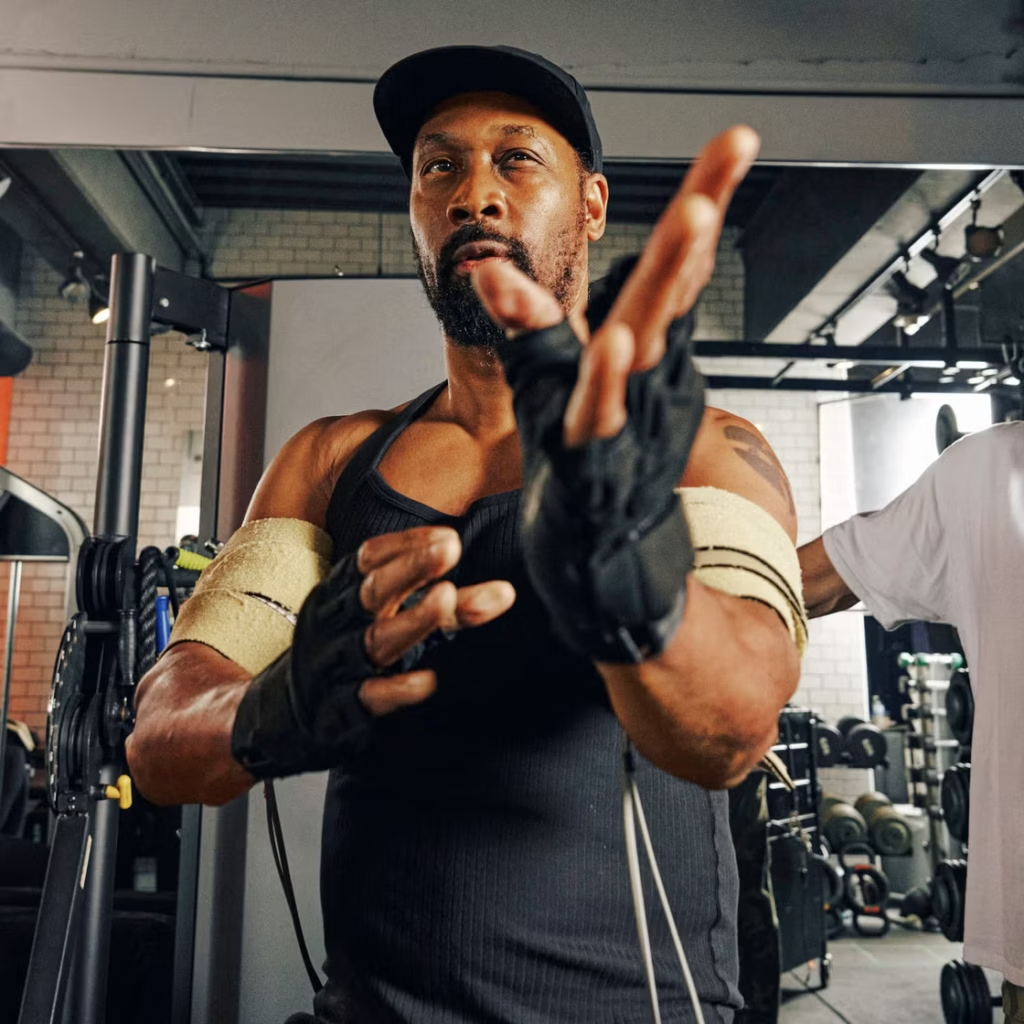I’M STANDING IN front of the bar, chalked-up hands clenched into fists, breathing deeply. The weight is heavy – heavier than anything I’ve lifted before. But instead of overthinking the load, I close my eyes for a second and repeat the words in my head: Light weight. Easy, easy, easy. Let’s go. I rip the bar from the ground, but it feels different. Lighter. Faster.
It turns out, this isn’t just placebo and it’s definitely more than bro-science. A new systematic review, published in the Strength & Conditioning Journal, confirms that the right mental preparation – known as ‘psyching-up’ – can significantly increase maximal force production. In other words, what your mind is doing before a lift can majorly impact what your body does.
The study
Researchers examined 27 independent studies to determine which psyching-up techniques actually improve strength performance. They found three strategies that were most consistently effective:
Preparatory Arousal
Ramping yourself up before a lift – think breathing exercises, hype music, or other external stimuli – was shown to increase maximal force output. But here’s the catch: self-directed arousal (ie, telling yourself to ‘get mad’) wasn’t as effective as prescribed arousal (Someone telling you to ‘Watch this video before you lift’). One study even tested ‘arousal-inducing videos’ and found they worked better than just trying to will yourself into beast mode. Turns out, you can’t turn into The Hulk on command – you need to be provoked.
Motivational Self-Talk
Repeating simple, powerful phrases like ‘Come on, push!‘ or Ronnie Coleman’s infamous ‘Light weight baby!’ consistently improved strength in the study. And if you’re wondering whether it’s better to say it in your head or out loud – one study found it didn’t matter. So, if you prefer to stalk around the gym shouting affirmations at yourself like a man possessed, science won’t stop you. (However, the gym manager might).
Stimulus Imagery aka Visualisation
Mental rehearsal – imagining yourself ripping the bar off the floor or standing victorious at a powerlifting meet – had a strong effect on performance. But not all visualisation worked. Just picturing a vague, feel-good moment wasn’t enough. The imagery had to be specific, engaging the senses and replicating real movement. So, if your pre-lift daydream is vivid enough and involves winning your next competition and being swarmed by adoring fans, that might actually work.
What does this mean for us?
Strength isn’t just about the body – it’s about the mind, they’re intrinsically linked, and not in a cliche ‘what the mind believes, the body achieves’ way. Your brain literally governs muscle activity.
All of these methods are free and take virtually zero time and effort, and the science says they could help you to boost strength and increase muscle growth. The right mental approach could be the key to unlocking new PRs and breaking through plateaus.
Let’s goooooo!
This article originally appeared on Men’s Health UK.
Related:
Osher Günsberg: How I Block Out Negative Self-Talk
The Psychological Trick to Tell if Someone Finds You Attractive | Men’s Health Magazine Australia















